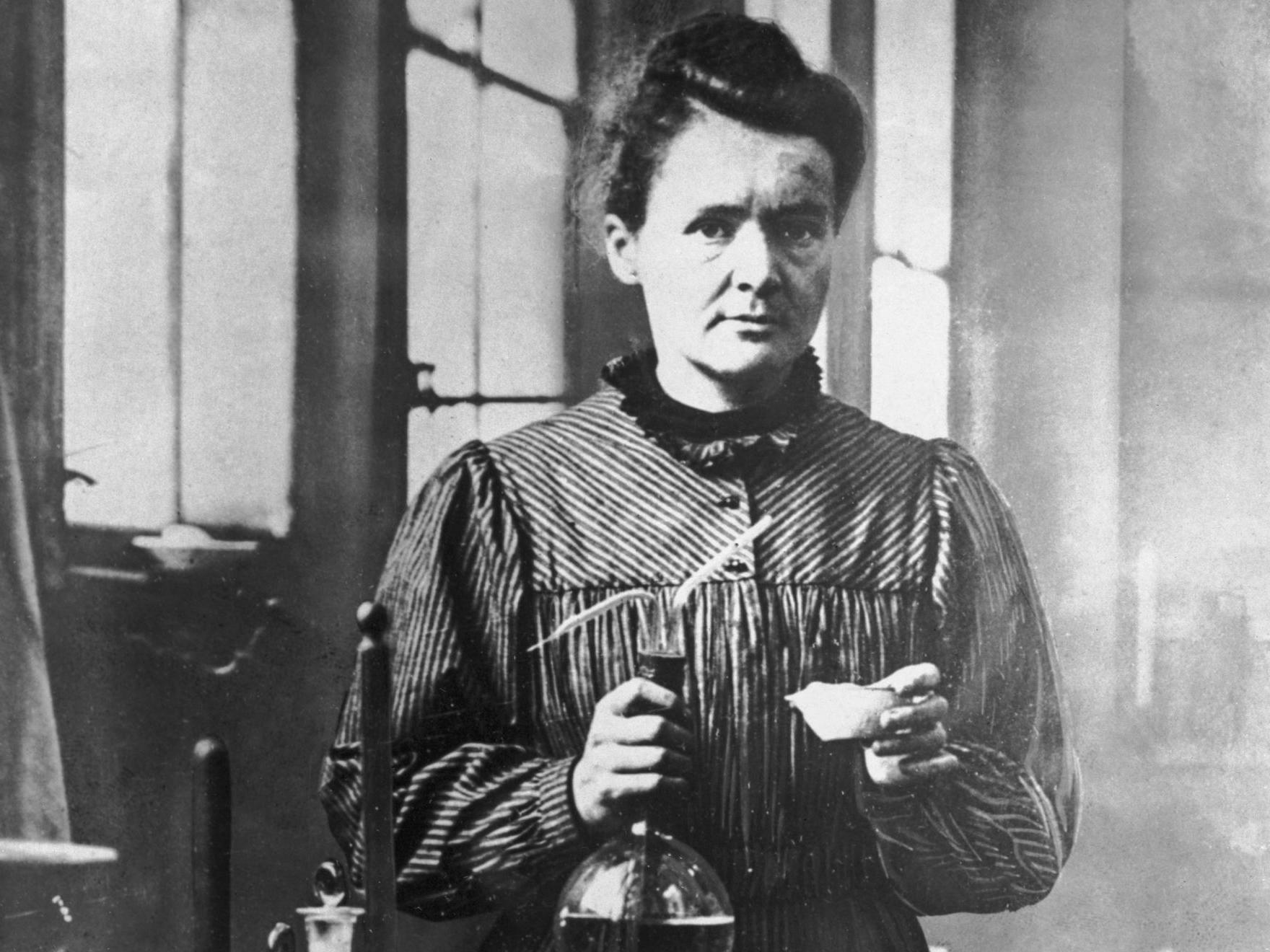The Independent's journalism is supported by our readers. When you purchase through links on our site, we may earn commission.
Marie Curie named most influential woman in history by poll
Activist Rosa Parks and aviator Amelia Earhart also made it onto the list

Your support helps us to tell the story
From reproductive rights to climate change to Big Tech, The Independent is on the ground when the story is developing. Whether it's investigating the financials of Elon Musk's pro-Trump PAC or producing our latest documentary, 'The A Word', which shines a light on the American women fighting for reproductive rights, we know how important it is to parse out the facts from the messaging.
At such a critical moment in US history, we need reporters on the ground. Your donation allows us to keep sending journalists to speak to both sides of the story.
The Independent is trusted by Americans across the entire political spectrum. And unlike many other quality news outlets, we choose not to lock Americans out of our reporting and analysis with paywalls. We believe quality journalism should be available to everyone, paid for by those who can afford it.
Your support makes all the difference.Pioneering physicist and chemist Marie Curie has been named the most influential woman in history in a list of 100 female trailblazers.
The list was compiled by BBC History magazine after the publication conducted a poll among its readers.
Civil rights activist Rosa Parks came second in the list of 100 women who’ve changed the world, with other entrants including writer Mary Wollstonecraft, Celtic queen Boudica and Diana, Princess of Wales.
Among Curie’s many achievements, she became the first person to win two Nobel prizes, coined the term radioactivity and discovered two elements, polonium and radium.
For the poll, BBC History asked for experts from 10 different fields to nominate 10 significant women each from the history books, before providing its readers with the list of 100 women to rank.
Curie was nominated by Patricia Fara, president of the British Society for the History of Science.
“She was the first woman to win a Nobel prize in physics, first female professor at the University of Paris, and the first person - note the use of person there, not woman - to win a second Nobel prize,” Fara says.
“The odds were always stacked against her. In Poland her patriotic family suffered under a Russian regime. In France she was regarded with suspicion as a foreigner - and of course, wherever she went, she was discriminated against as a woman.”
The women who made it onto the list hailed from many different fields, including literature, politics and sport, many of which were deemed as being rebellious in their times.
Margaret Thatcher, the UK’s first female Prime Minister, placed sixth on the list, with suffragette Emmeline Pankhurst coming in third.
Charlotte Hodgman, deputy editor of BBC History magazine, explains the significance of the list coming out on the 100th anniversary of women’s suffrage.
“The poll has shone a light on some truly extraordinary women from history, many of whose achievements and talents were overlooked in their own lifetimes,” she says.
“It is fitting that, in a year that has seen the 100th anniversary of the parliamentary Act that gave the vote to many British women, suffrage campaigners Emmeline Pankhurst and Josephine Butler have been voted into the top 20.
“Whilst it is unsurprising to see queens such as Victoria and Eleanor of Aquitaine place high, it is refreshing to see some more unfamiliar names make the top 20, such as 19th-Century philanthropist Angela Burdett-Coutts. I’m sure the full list will provoke conversation and debate.”
Here are the top 20 entries from BBC History magazine’s '100 women who changed the world':
- Marie Curie
- Rosa Parks
- Emmeline Pankhurst
- Ada Lovelace
- Rosalind Franklin
- Margaret Thatcher
- Angela Burdett-Coutts
- Mary Wollstonecraft
- Florence Nightingale
- Marie Stopes
- Eleanor of Aquitaine
- The Virgin Mary
- Jane Austen
- Boudicca
- Diana, Princess of Wales
- Amelia Earhart
- Queen Victoria
- Josephine Butler
- Mary Seacole
- Mother Teresa
You can find the full list of 100 influential women in the new issue of BBC History magazine.
Join our commenting forum
Join thought-provoking conversations, follow other Independent readers and see their replies
Comments